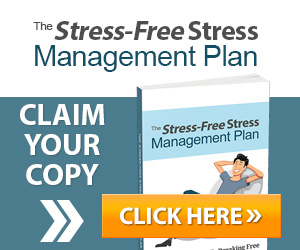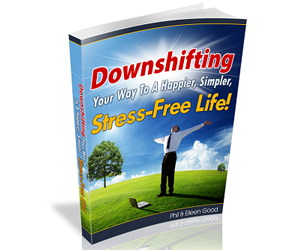Stress-Free Stress Management Checklist
Looking to improve your stress levels? Ironically, this can end up being stressful in itself! Knowing you have a problem with stress is of course the first step towards getting better but it also means you now know you have a problem and it means you have a long road stretched out in front of you to “recovery“.
If only there were a stress-free way to manage stress like a checklist for instance!
Do You Have a Stress Addiction?
The first point of order is to consider the possibility that you may have a stress addiction. Unlikely though it may sound, stress addictions are common as we find ourselves unable to pull away from work and other high intensity activities.
- If you “thrive under pressure” and if you can never take time off, you may well have a stress addiction.
- If you feel bored and fidgety when you’re unwinding, you may have a stress addiction
- If your friends and family complain that they never get to see you, this is a sign of a stress addiction
- If you feel constantly “wired” then you may have a stress addiction.
The first step to overcoming stress then is to recognize that you may feel it’s difficult to change these habits: but you must in order to gain freedom from stress.
Identifying Your Stressors
A good place to start when tackling stress is to look at your stressors. Stressors are things that cause stress and these can include things like work and debt. At the same time though, they can also include slightly smaller things in many cases.
Common stressors include:
- Impending deadlines
- Calls you need to make and don’t have time for
- Angry bosses
- Awkward colleagues
- Friends or partners who are angry with you
- Arguments
- The commute to work
- Untidy homes
- Health problems
- Inability to pay bills/debt
What you’ll notice is that some of these things are rather small and easy while others are big and abstract. A good place to start is by dealing with the smaller problems that you can tackle more easily. You might also be able to break down bigger problems into smaller issues.
For instance “work” can actually mean:
- Awkward colleagues
- Bad bosses
- Uncomfortable working environments
- Unpleasant commute
- Painful working hours
- Large workloads
- Impending deadlines
So even if you can’t change your job, you may be able to deal with some of these specifics. Where will you start?
Good Habits
A lot of these problems wouldn’t occur if you were to use good stress/time management habits.
Here are some good examples:
- Little and often instead of letting your dishes pile up, try tackling them sooner so that they never build up to that level.
- The pomodoro technique are you prone to procrastination? Get around this tendency by using the pomorodo technique: segregating your working hours into periods of work and rest using a timer.
- The 80/20 law if you’re self-employed, you might find that 80% of your work comes from 20% of your clients. Cut the rest.
- Close open loops don’t let things continue to stress you out over the long term. If you have a call to make, make it sooner and “close the loop“.
Lifestyle Changes
You should also apply these lifestyle changes to make stress easier to cope with:
- Make sure you sleep well by going to bed at a similar time every day, by having 30 minutes to calm down with a book and by relaxing into bed
- Make sure you give yourself breaks and holidays occasionally! No one should work 365 days a year!
- Exercise exercise improves stress and energy in numerous ways.
- Eat healthily
- Wake up with a daylight lamp, not a blaring alarm!
Dealing With Acute Stress
Finally, try to learn to deal with acute stress. Some things that can help here include:
- Breathing more slowly which will activate the parasympathetic nervous system
- Learning mindfulness and cognitive behavioral therapy
- Reminding yourself of why you shouldn’t be stressed
- Removing yourself from the situation
There you have it: you now have all the tools and know-how to begin your move towards a stress-free life!




